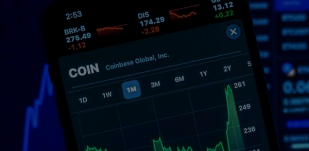Top International Payment Methods: Pros & Cons
There is a growing need for reliable international payment methods for businesses and individuals making online transactions.
According to Statista, the global share of goods sold in cross-border ecommerce trade grew from 16% in 2016 to 22% in 2022.
Whilst there are many cross-border payment systems and financial institutions to choose from, not all of them measure up to the same reliability, safety, convenience, and affordability standards.
Finding the best option to send money internationally can be a daunting task. Here are some international money transfer methods and their pros and cons to help narrow down your choice.
1. International wire transfer
International wire transfers are executed by banks via the SWIFT network (Society for Worldwide Interbank Financial Telecommunication). The bank transfers funds from your account or credit card to bank accounts in another country. These transfers typically take up to five days to complete.
Some banks provide the option of direct debit payments. This method is often used when setting up automatic recurring payments, such as paying an overseas mortgage.
To complete the transfer, you will need the following information:
- The recipient’s full name.
- Recipient’s account number or IBAN (International Bank Account Number).
- Recipient banks’ NCC (National Clearing Code) when sending accounts that don’t have an IBAN.
- Recipient’s bank routing number (if sending to an American bank).
- Recipient bank’s SWIFT or BIC code (Bank Identifier Code) - the unique identifier that ensures the money doesn’t go to the wrong bank.
- Reason for the transfer.
Message to beneficiary or reference (optional).
| Pros | Cons |
| Available in banks all over the world | Banks charge high fees for wire transfers |
| Transfers are regulated to increase the security and safety of funds | SWIFT transfers may go through several banks where intermediary fees may be applied |
| Can take several days to be processed | |
| Not reversible |
2. Card payments
With a prepaid debit card, your funds are taken out of your bank account and then transferred using the card network to the recipient's debit card account.
For credit cards, the transaction works in a similar way to a purchase. The credit card provider funds the transfer, which you then have to pay back.
Debit cards are more cost-effective than credit cards. However, credit cards can offer the benefit of a reward scheme and can help you build your credit score.
| Pros | Cons |
| Immediate transaction processing | Both the sender and recipient pay a fee for each transaction |
| Beneficial if you're dealing with business partners in countries with shallow banking systems | Recipient pays an additional ATM fee |
| Credit cards can be convenient | Credit card fees are normally excessively high |
| You may not get the best exchange rate |
3. Mobile money apps
If you have a mobile money wallet, you can use it to send and receive money safely, even if you don’t have a bank account or cards.
The money is transferred to a secure electronic account that is linked to your mobile phone number, which you’ll easily be able to access via an app.
You can make payments from anywhere, at any time, with just a few clicks. Most phone apps are easy to use and provide messaging trails that make it easy to track transactions.
| Pros | Cons |
| Easy and convenient to use | Limited interoperability between networks |
| Works in underbanked and remote places (as long as there’s a mobile network) | Risk of smishing - when scammers send fake text messages to steal your money and information |
| Easy for the receiver to access | Limited resources when dealing with larger amounts |
| Fast | |
| Cost-effective |
4. Online money transfer services and foreign exchange specialists
Money transfer services and foreign exchange specialists allow you to exchange currencies and transfer money internationally. Transactions typically take place via an online platform or app.
Many money transfer companies offer “do it yourself” services where you can process the currency transfer for yourself online. Some have dedicated currency specialists available to answer your questions and provide expert guidance. Others, like Clear Currency, offer both. Here are some of the benefits to using an international payments specialist:
You avoid mistakes
Foreign exchange transfers can be complex, and if you don’t have the guidance you need, you can make costly mistakes. Recalling funds from overseas can be a long, challenging and expensive process, so getting help from the outset is advisable, to ensure you get it right first time.
They can help you find the best exchange rates
Exchange rates move by the second. It helps if you have a dedicated currency specialist who is familiar with the market trends to help you achieve the most favourable rate of exchange and lower your risks.
| Pros | Cons |
| Competitive exchange rates | Some providers are unregulated and unsafe, putting your money at risk |
| Low or no transfer fees | |
| Faster transfer times | |
| Some specialists help you manage risk by locking in exchange rates | |
| Most platforms are easy to use | |
| Most providers can send money to multiple countries and currencies all over the world |
Choose Clear Currency for your international money transfers
Of all the methods discussed in this article, using online money transfer services or foreign currency specialists provides the most benefits when transferring money internationally. Online platforms are fast, convenient and budget-friendly.
That’s where Clear Currency comes in. We are registered with the Financial Conduct Authority (FCA), whose primary aim is to ensure financial markets work honestly, fairly and effectively for individuals, businesses and the economy as a whole.
Whether you're a company or an individual, sign up for an account with us today for fast, cost-effective and secure international transfers.
Related Articles
How to Mitigate Foreign Exchange Risk
Currency risk can have a significant effect on the efficiency and profitability of any international business. Each exchange rate movement affects how much you receive from sales and what you pay to suppliers.
Read more
Moving to Dubai from the UK: Checklist
You’re ready for a new life overseas and have decided you’re moving to Dubai. Now it’s time to consider the various costs involved, from your visa and accommodation, to health insurance, shipping your belongings and bringing your beloved pets along too.
Read more
Currency Outlook Quarter 1 2023
Clear Currency looks back at the performance of the US dollar, euro and sterling in Q4 2022, and assesses what might be in store for Q1 2023.
Read more


